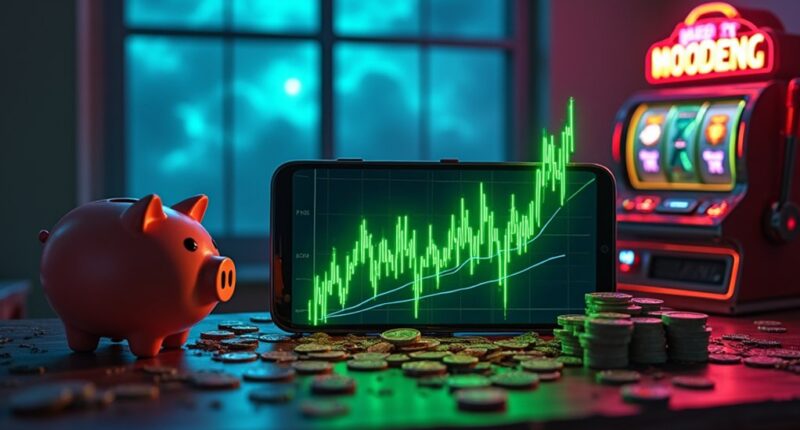Igniting a frenzy in the volatile crypto arena, Robinhood has brazenly fueled the meme coin surge by listing speculative tokens like PENGU, POPCAT, and PNUT, daring retail investors to plunge into this high-stakes gamble. This platform, with its slick, user-friendly interface, shamelessly courts both greenhorn dreamers and jaded speculators, amplifying accessibility to these digital wildcards. Why bother with due diligence when a shiny app can turn pocket change into a jackpot—or a pitfall? Robinhood’s influence, undeniably potent, catapults prices, as seen with Moo Deng’s 18.3% spike post-listing, while trading volumes explode, evidenced by a 127% surge on Binance. Is this empowerment or exploitation of the masses?
The market, a chaotic beast, thrives on such reckless hype, with meme coins—volatile, community-driven, and often absurd—luring those burned by stagnant stocks. Mixed signals from traditional markets only push thrill-seekers toward these high-risk, high-reward traps, where social media buzz dictates value more than fundamentals ever could. Robinhood’s listings, far from mere business moves, are catalysts for chaos, goading investors to chase fleeting gains while ignoring the inevitable crashes. Look at Dogecoin, somehow clinging to stability amidst the madness—does it signal legitimacy, or just a fluke in a sea of scams? Meanwhile, tokens like HOOD have seen a staggering rise, doubling in price with a 100% daily increase as reported by recent market data. Meme coins like Dogecoin, with a market cap over $61 billion, continue to attract attention for their potential 2x+ returns in the current bull cycle.
And yet, the gamble grows, with tokens like BTFD, Pepe, and SPX6900 joining the fray, each a shiny distraction for retail investors hungry for the next big score. Social media platforms amplify this frenzy, often drowning out critical analysis with unchecked hype and celebrity endorsements. Robinhood, alongside Coinbase, smirks at the 2025 outlook, poised to profit from this crypto boom while others bear the losses. Accessibility? Sure, but at what cost? Market expansion masks a grimmer truth: this isn’t innovation—it’s a circus, and the ringmasters aren’t liable when the tent collapses. Wake up, speculators; the house always wins.








